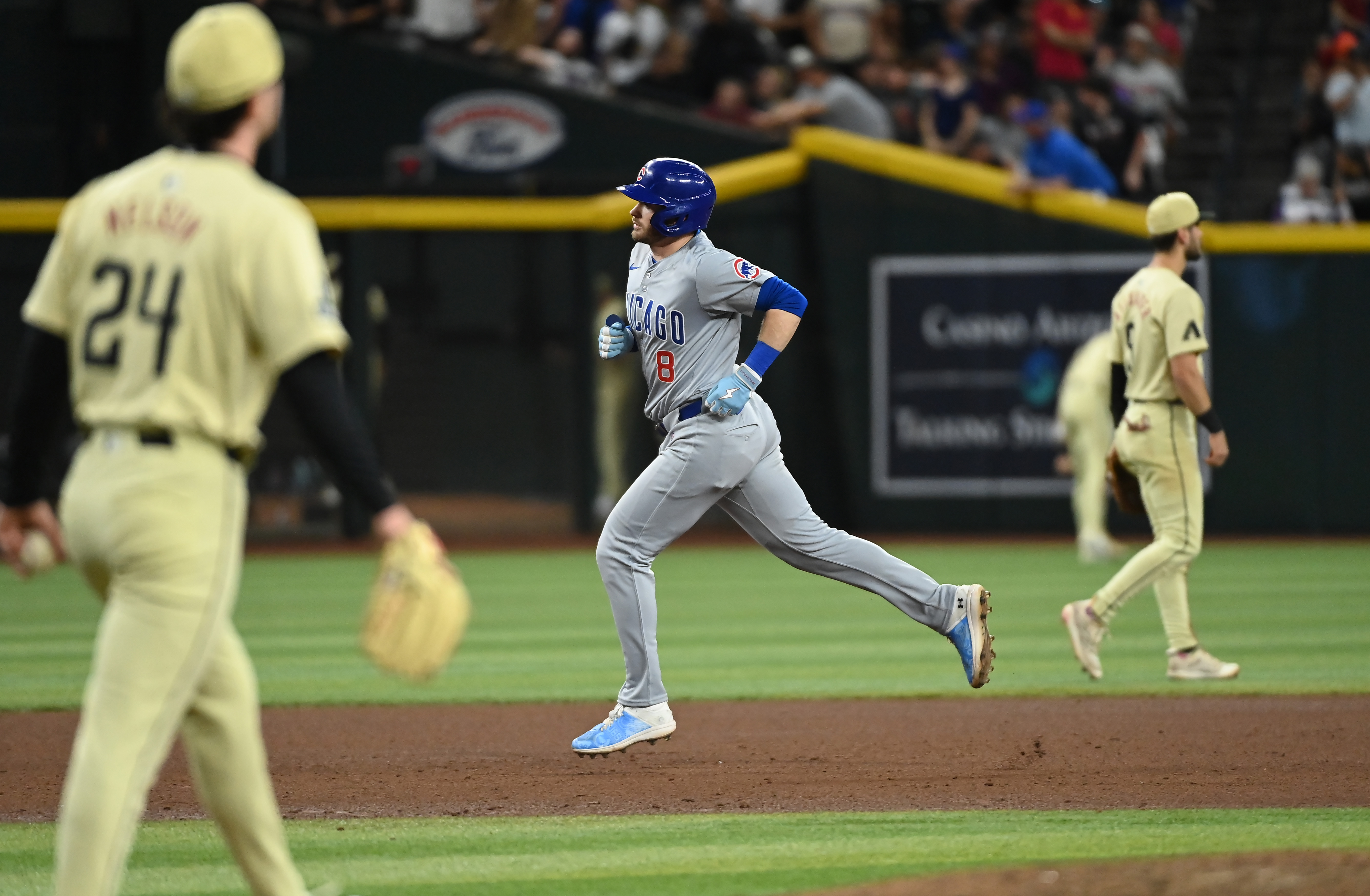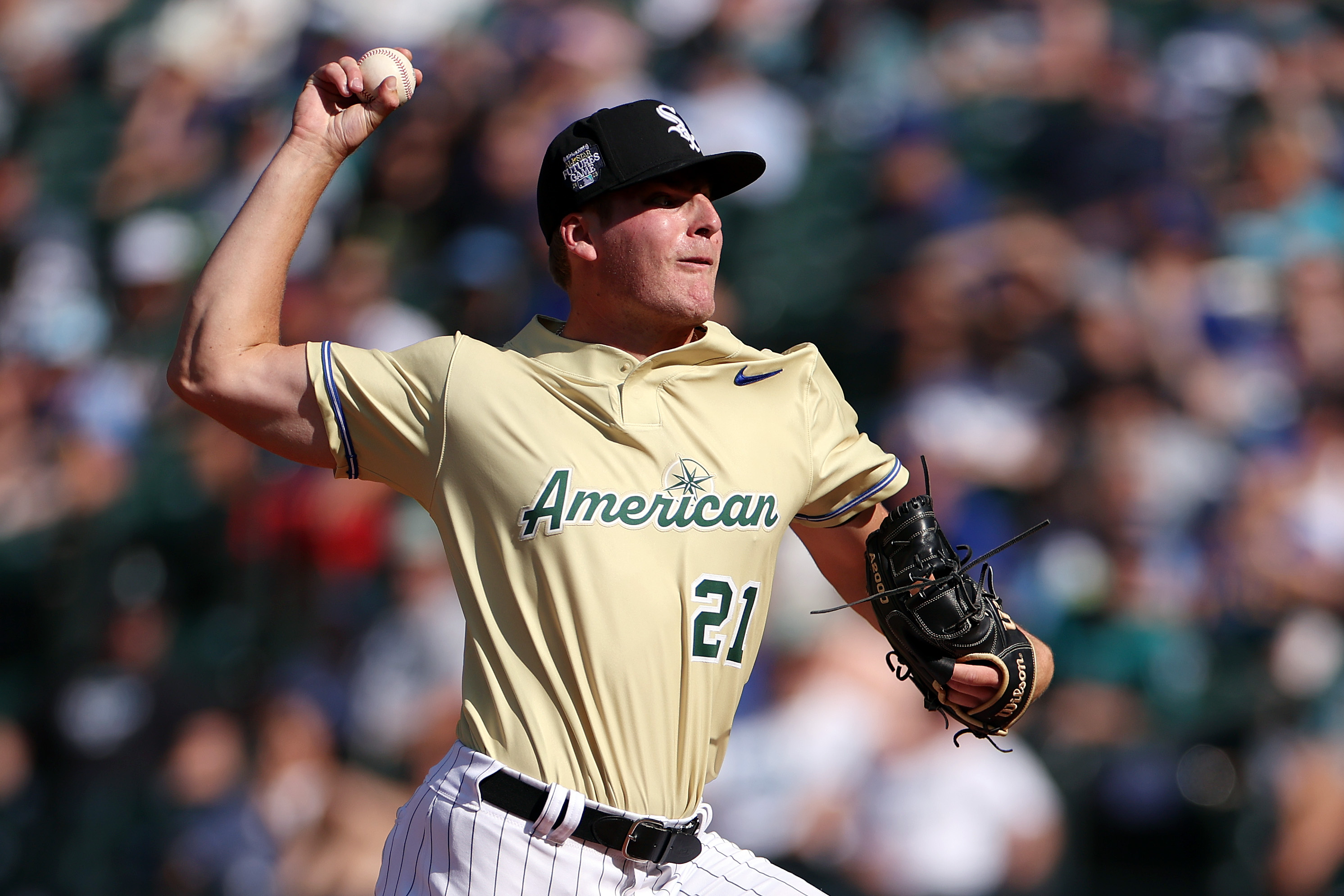While baseball resumes in South Korea on Tuesday, Major League Baseball is still trying to figure out a feasible plan to play games in 2020.
Inadequate testing and inconsistent government regulations in different states across the country are among the obstacles MLB faces during this unpredictable COVID-19 pandemic.
Many different proposals were floated over the last month. One included all 30 teams playing in Arizona under quarantine conditions. The latest involved teams playing in their home ballparks, but with the league reorganized into three 10-team regional divisions to reduce travel.
One thing is clear: MLB is doing everything it can to get the 2020 season played.
To sort through the proposals and the impact they might have on Chicago’s baseball teams, NBC Sports Chicago Cubs Insider Gordon Wittenmyer and White Sox Insider Adam Hoge got together for an in-depth discussion. Here is their conversation:
Hoge: Well, Gordon, it seems like every few days, we get a new proposal about how to play the 2020 season safely. None of these proposals are going to work without adequate testing, but I applaud Major League Baseball for staying prepared and keeping many different options on the table. I think the league understands there is a big opportunity for baseball to provide live games to sports-starving fans, even if it’s just on their televisions.
I’m curious what you think about the different proposals? Selfishly, I love the idea of the White Sox, Cubs, Brewers, Cardinals and Twins all playing in the same division – mainly because it would make every game compelling to cover. But I’m not sure the latest proposal makes a lot of sense. It still involves significant travel, which the White Sox’s head team physician questioned when I talked to him in April. Is there really a difference between flying to Minneapolis and flying to Los Angeles from a safety perspective? If plane travel is involved at all, it feels like the divisions can remain the same.
MLB
Wittenmyer: Obviously, the top three issues with any of these plans must be resolved before even the most restrictive plans can be considered: 1. Testing; 2. Testing; 3. Testing.
To me, that means any discussion now has to start with quarantine-like conditions, no fans allowed and minimal air travel, if any — like the 30 teams in Arizona plan.
Hoge: It feels weird to talk about opportunity in such a bad situation, but I do see some opportunity for baseball in 2020 if they can find a way to get games played. I mean, ESPN is showing Korean Baseball Organization games in the middle of the night. Imagine the ratings for MLB games. I'm someone who believes the sport has gotten a little stale, struggling to build a younger audience. If 2020 comes with temporary realignment and a shorter schedule, I wouldn't be surprised to see it result in a more exciting day-to-day season. It would be more of a sprint, rather than a marathon.
RELATED: Get ready for middle-of-the-night baseball, live from Korea
Wittenmyer: No doubt about that. And no doubt that MLB has at least as great an incentive to play its season as any other sports league. Imagine being centerstage in front of a sports-starved television audience with no other leagues competing for attention. Whatever the format is for an abbreviated season, it's going to be new, interesting, and will probably involve experiments with things like electronic strike zones and the universal use of the DH. Talk about must-see TV. If they can pull it off, there's an entire generation of fans to be gained after decades of decline — assuming the kids aren't already satisfied with that MLB the video game crap we saw the last few weeks and sitting around waiting for some more Ian Happ-Lucas Giolito couch-potato action. The incentive that ultimately makes this happen, though, is going to be the nearly $1 billion national TV money that's sitting out there rotting with no baseball — most of it tied up in postseason broadcast rights. Nobody wants baseball more than Reinsdorf, Ricketts and the boys. So bring on the testing kits and get Tony Fauci on the phone.
Hoge: If anyone can get baseball going, it's Fauci. At this point, it seems like almost every proposal has included the Cubs and White Sox playing more games against each other, either because they are in the same league in Arizona or even in the same 10-team regional division at their own stadiums. We both mentioned our doubts about playing games in home stadiums, but in terms of entertainment value, the 10-team Midwest division would certainly be compelling to write and talk about. The White Sox were set to play the NL West this year, and while avoiding the Dodgers would be a bonus, throwing the Cubs, Brewers, Cardinals and Reds into the division would make the competition tougher, in my opinion.
As for temporary rule changes, expanded rosters and the universal DH appear imminent. The electronic strike zone has been discussed, too, which would diminish the defensive upside Yasmani Grandal brings to the team. From a 40-man roster standpoint, I think the White Sox would be fine compared to other teams. This delay has actually made their pitching deeper. Michael Kopech and Carlos Rodon could be ready to contribute, and there are young bullpen arms like Zach Burdi and Tyler Johnson who could be used as reinforcements if they are needed with fewer off days. The depth is young, though. On one hand, if there is no minor league season, these young kids need to play. On the other hand, their development might be rushed at the big league level. As for the DH, the White Sox are much better off with Edwin Encarnacion on the roster.
But we’re talking about an American League team. How do you think National League teams would adjust to needing a DH, especially if they are suddenly thrown into the same divisions as American League teams?
Wittenmyer: DH? The Cubs have never lacked for DH-caliber dudes in the field. The obvious quick answer is to plug Kyle Schwarber into that spot and strengthen the outfield. Advantage: Cubs. Another? Electronic strike zones make Willson Contreras' athletic ability even more dangerous behind the plate. The shorter season could benefit some of the aging pitchers and reduce margin of injury risk for a staff with less depth than in recent years. Doesn't help either Chicago team to swap Pittsburgh out of the Midwest division for Atlanta. But in the Cubs' case, it's a small price to pay for getting KC, Detroit and the Sox instead of the Dodgers, Nationals, Yankees, Red Sox, Phillies and Jacob deGrom, who were on the original schedule. If there's one big disadvantage for the Cubs in any of these proposed plans, it's playing without fans. The big-attendance clubs such as the Cubs tend to struggle at times at low-attendance ballparks with less "energy" in the place, even against lesser teams. Definitely will take be an adjustment for the Cubs. Maybe the Sox can offer a few tips.
Click here to download the new MyTeams App by NBC Sports! Receive comprehensive coverage of your teams and stream the White Sox easily on your device.


